Vietnamese
 |
After the flood receded, the green rice fields, lush corn fields, and vast alluvial fields of wild grass, which were ideal grazing grounds for buffaloes and cows for people in the communes outside the Ta Lam dike in Nam Dan and Hung Nguyen districts, were covered in a silvery brown color of mud. Livestock in these localities, especially in the flood-prone areas, were severely lacking in green fodder. In the photo: The alluvial ground along the Lam River where buffaloes and cows of people in hamlet 9, Xuan Lam commune (Hung Nguyen) were grazed in mud. Photo: Huy Thu |
 |
After many long days tied on the Ta Lam dike or locked in the barn during the flood season, the buffaloes eagerly go out to the fields and mudflats to find food. People in Xuan Lam commune (Hung Nguyen) said: The fields and mudflats are all mud, even though the buffaloes and cows have nothing to eat, they still have to let them out to "walk". Photo: Huy Thu |
 |
Looking at the buffalos plopping down in the floodwaters that have not yet receded to eat muddy weeds on the riverbank, many people cannot help but feel sorry for the livestock during the flood. Ms. Phan Thi Huyen - Chairwoman of the Farmers' Association of Hung Loi Commune (Hung Nguyen) said that the hamlets outside the Ta Lam dike of the commune have about 1,000 buffaloes and cows. After the flood, the fields were deeply submerged, and now the livestock in the hamlets are very short of green food. Photo: Huy Thu |
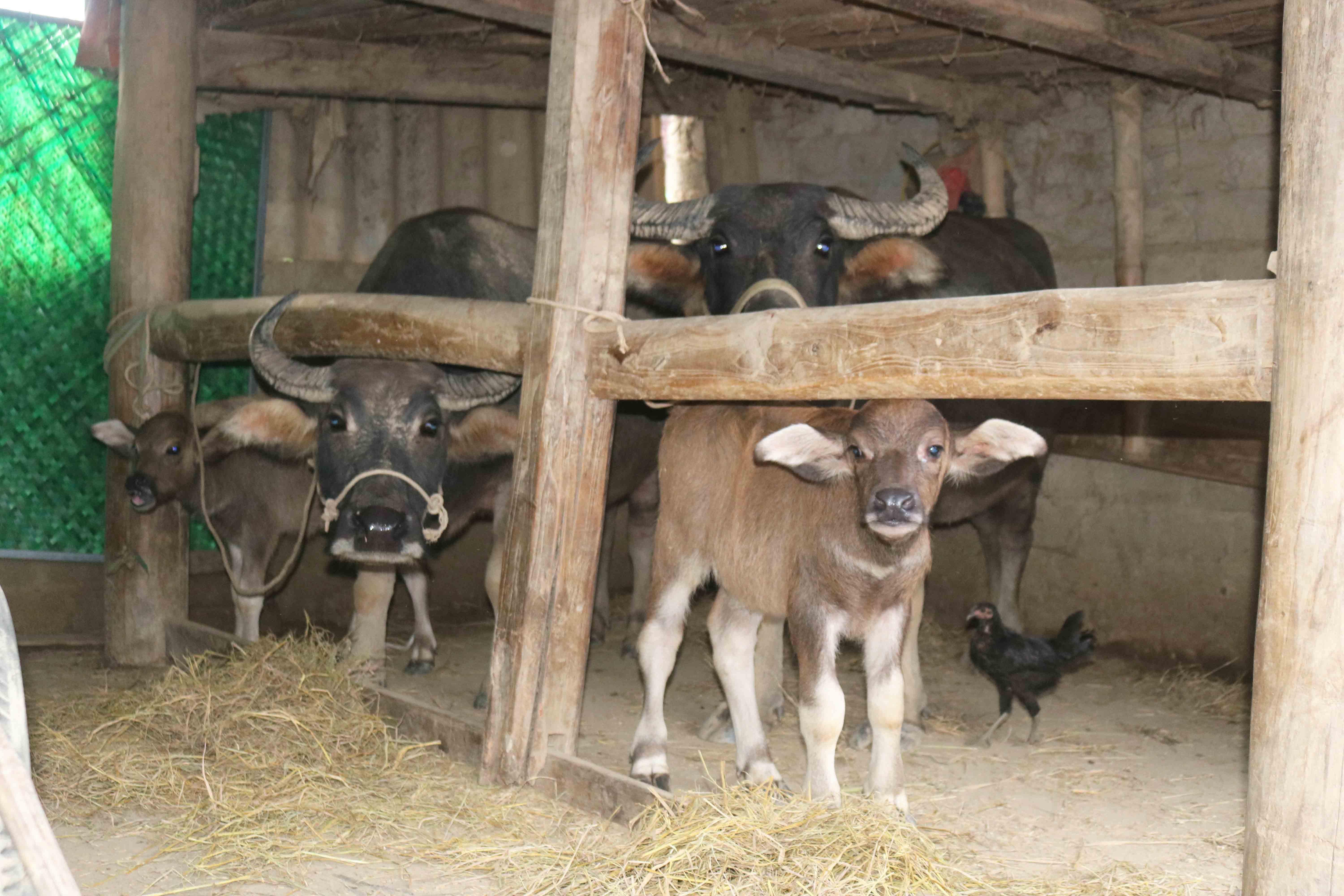 |
Mr. Du Van Bang - Head of Hamlet 9, Xuan Lam Commune (Hung Nguyen) shared: The hamlet has 186 households, of which about 90 households raise buffaloes and cows. The total herd of buffaloes and cows in the hamlet is about 500, with small households having 1-2 cows and large households having 9-10 cows. Here, almost every household raises about 4-5 cows. After the flood, green food for livestock became scarce. People in the hamlet are struggling to find food sources for buffaloes and cows, especially green food. Currently, people are in great need of corn seeds to plant on alluvial land, to create a good food source for livestock. Photo: Huy Thu |
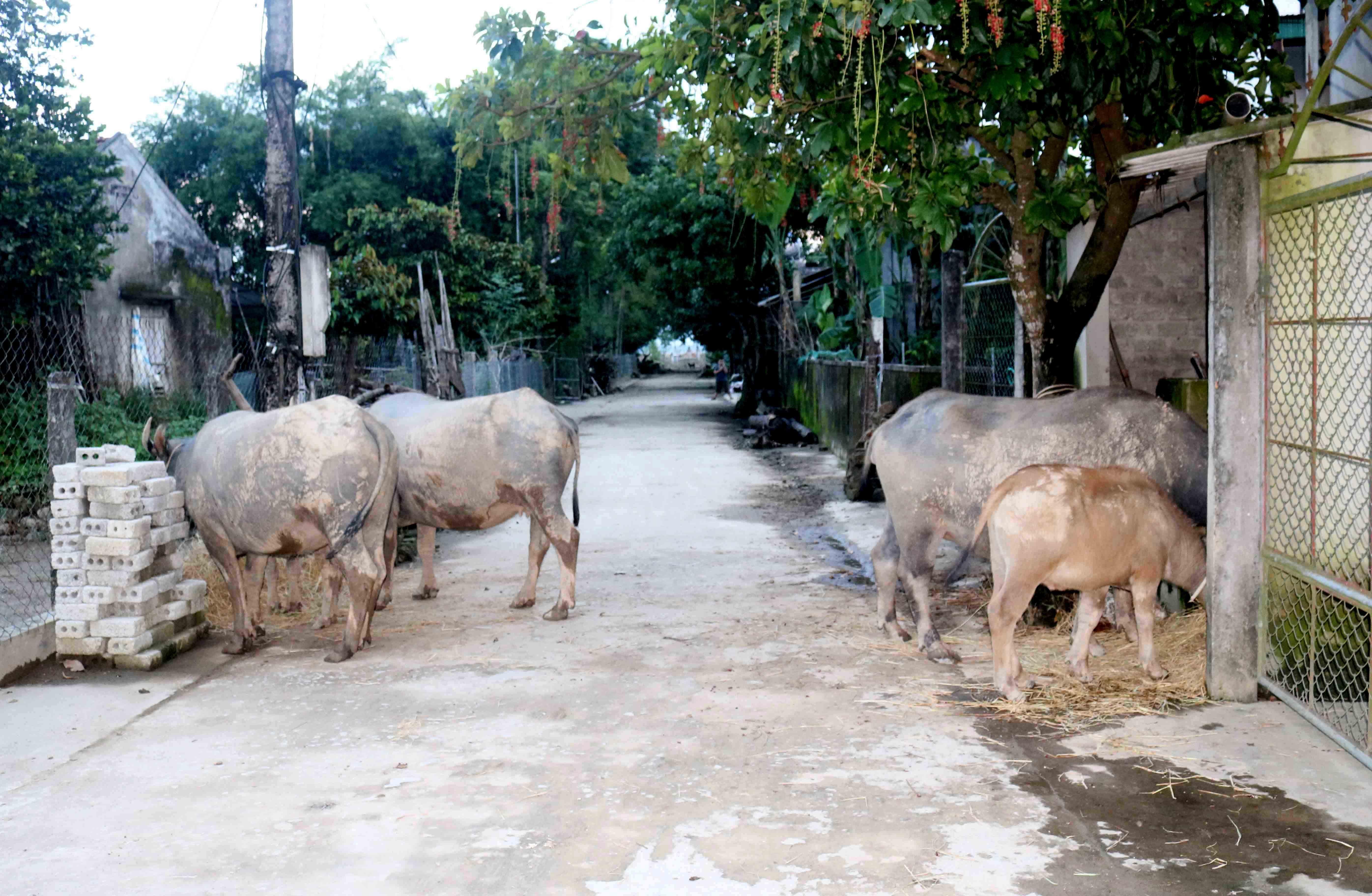 |
These days, in the villages and hamlets outside the Ta Lam dike in Hung Nguyen district, from Hung Linh commune to Hung Loi commune, it is not difficult to see people tying buffaloes and cows on the village roads. According to Mr. Nguyen Van Sang, a householder raising many livestock in Xuan Lam commune (Hung Nguyen), when letting buffaloes out to the fields, there is nothing to eat, so they tie them at home and feed them a little dry straw to survive. Photo: Huy Thu |
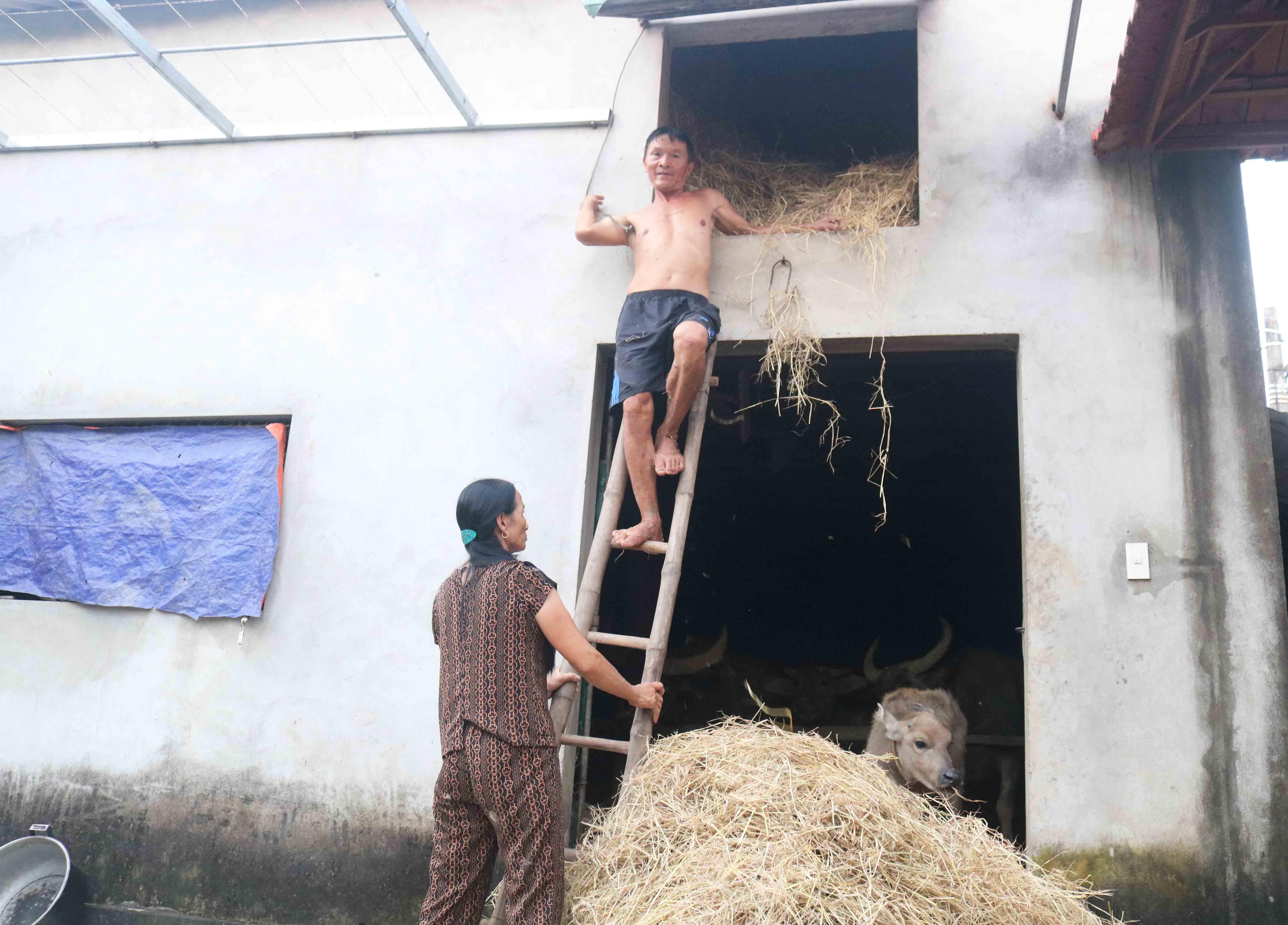 |
Mr. Duong Van Hien in Xuan Lam commune (Hung Nguyen) said. During the harvest season, after harvesting rice, his family and many livestock farmers in the village actively collect straw from their fields and take advantage of going to communes such as Hung Thang, Hung My... to ask for straw to dry in order to store food for buffaloes and cows all year round. Many families build high straw houses to store straw. However, this year, the flood is big and deep, the grass and corn in the fields are rotten, so they mainly rely on dry straw, so they are afraid of not having enough straw for buffaloes and cows. Photo: Huy Thu |
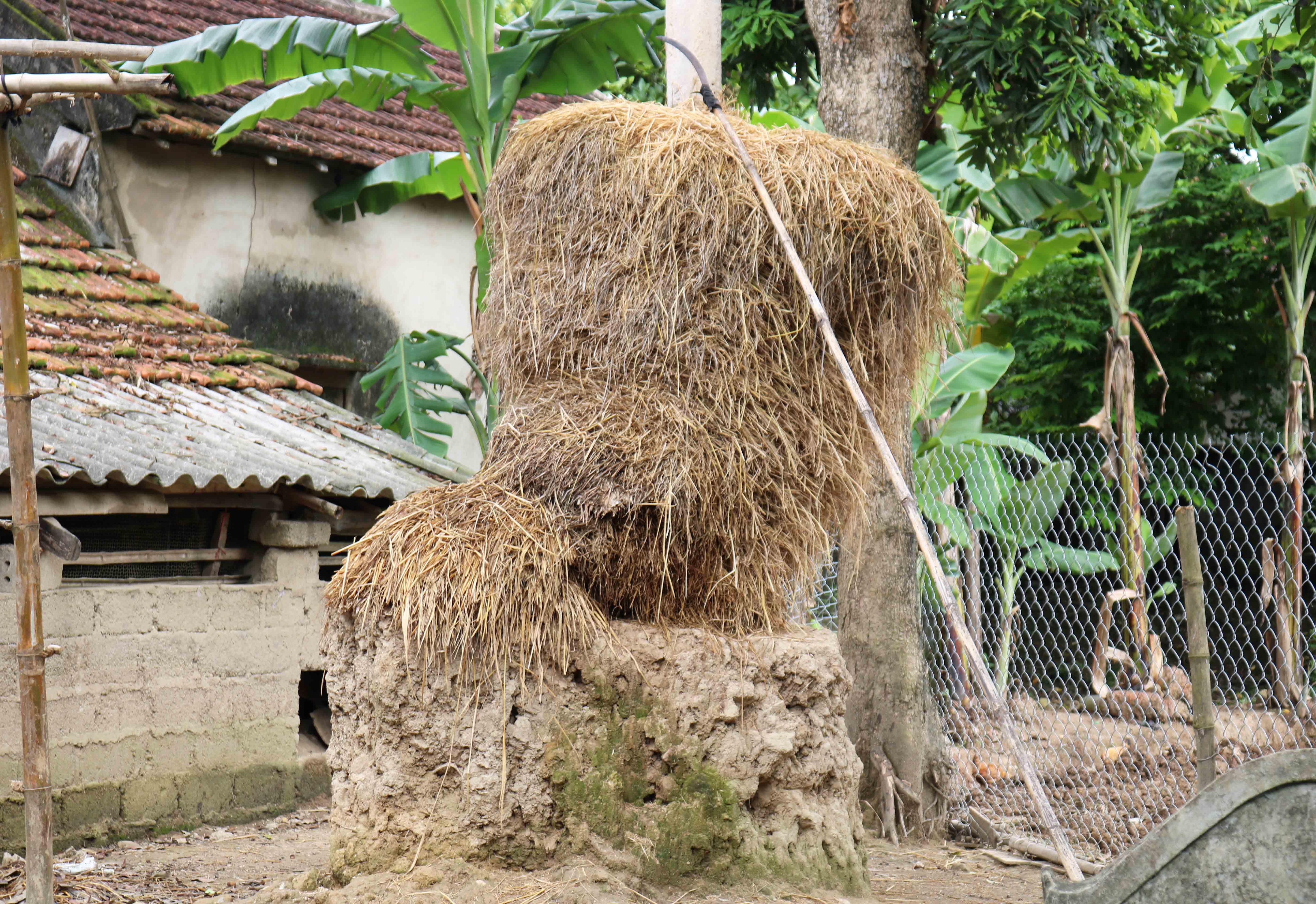 |
Families in flood-affected areas in Hung Nguyen, Thanh Chuong... cannot build straw houses, so they often build straw stacks outdoors, without cover. The straw gets damaged, rotten, and lost a lot, making it easier to run out of straw for buffaloes and cows after the flood. Photo: Huy Thu |
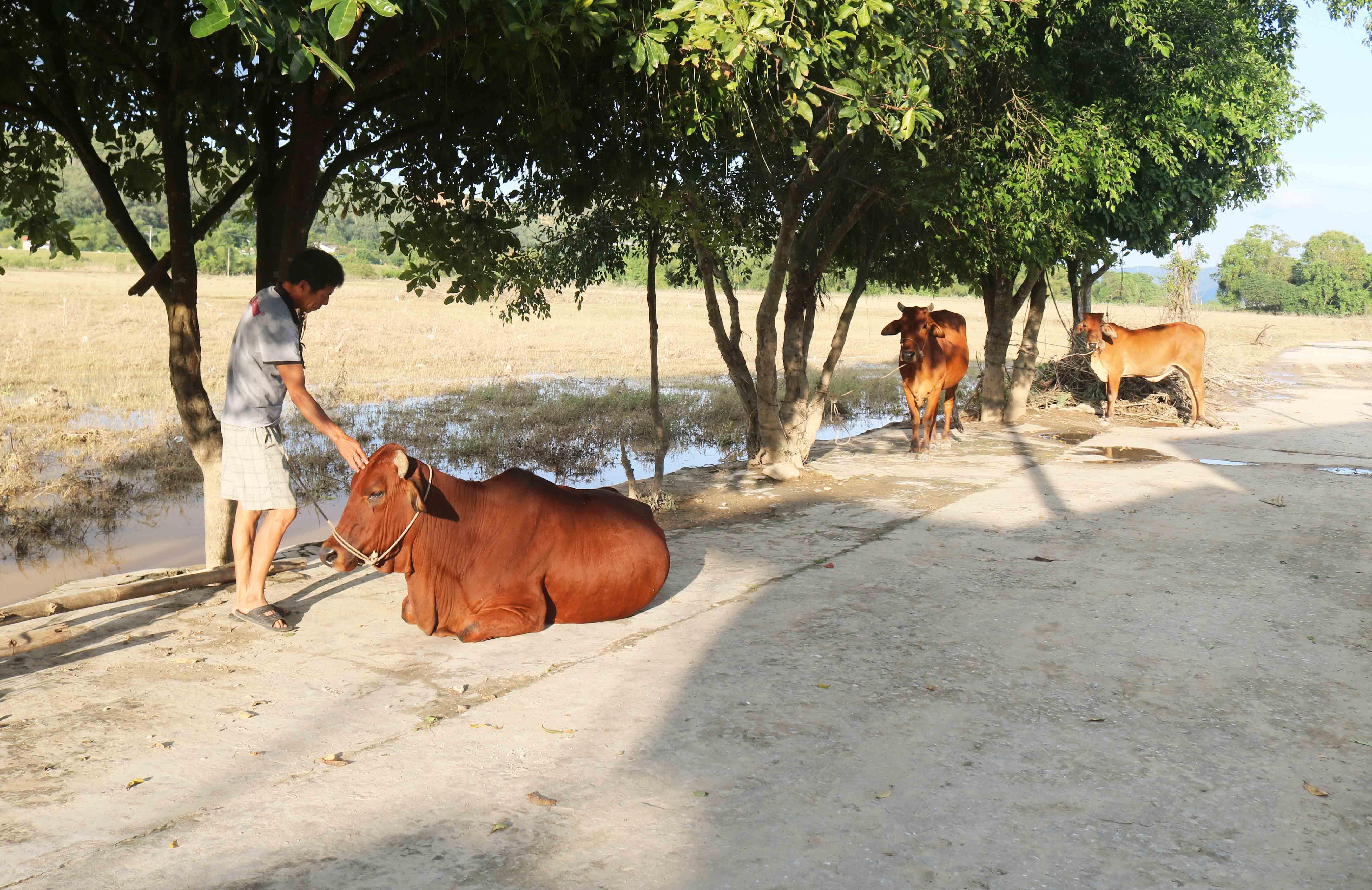 |
Buffaloes have the habit of wading in deep, muddy fields to eat grass, while cows prefer to wade in shallow fields. Therefore, after floods, cows are often tied to tree roots or let out to "walk around the village" to avoid sore legs. After floods, buffaloes and cows are locked up for a long time, so they should be cared for and fattened more. However, currently, flooded areas, especially flood-prone communes, lack green food, requiring people to increase their intake of concentrated foods such as bran and corn flour to ensure the health and maintain the "health" of buffaloes and cows. Photo: Huy Thu |
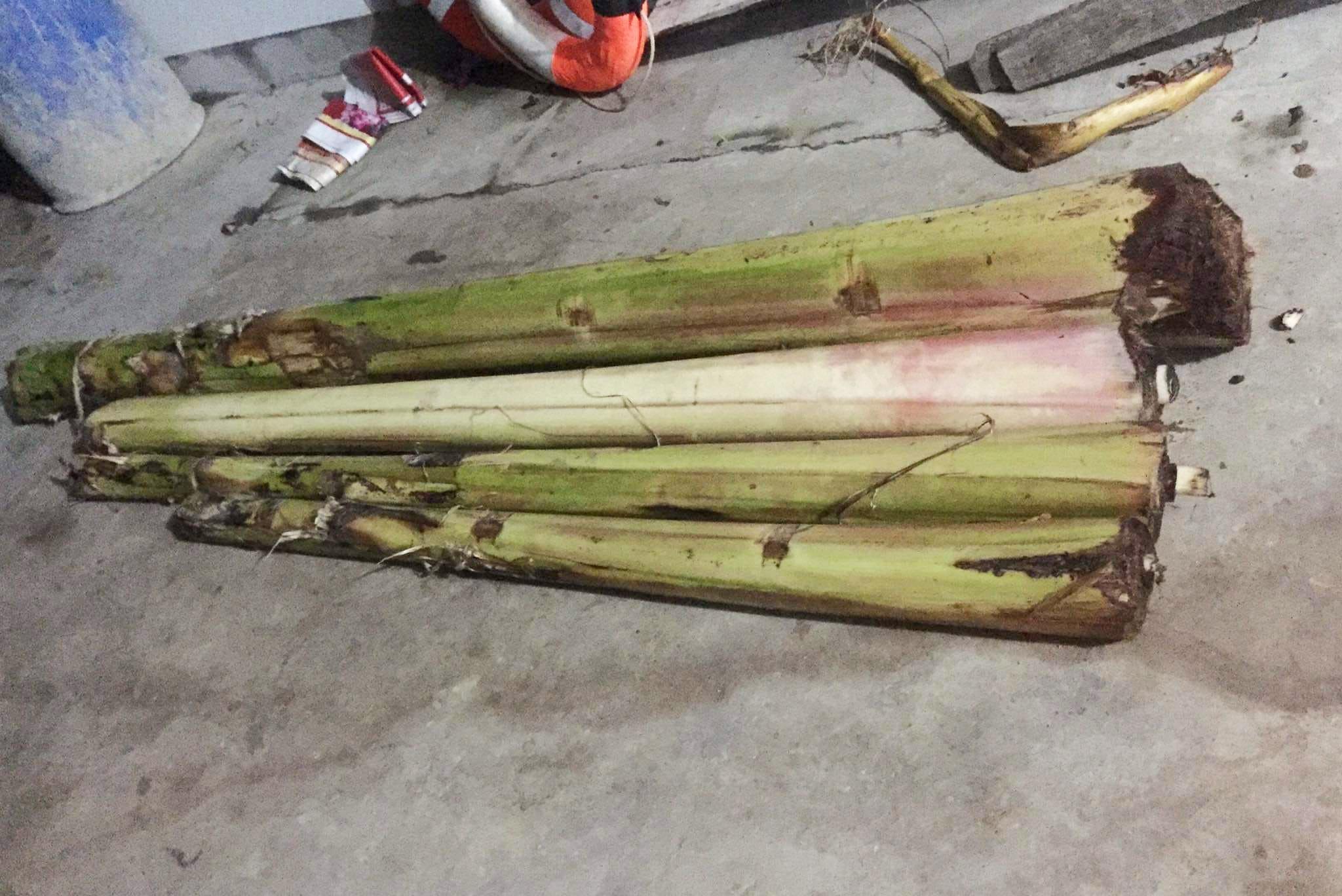 |
Learning from experience from many generations, every time there is a flood, before the roads are flooded, along with moving buffaloes and cows up the hill, leaving them at households with higher gardens, people raising livestock in the flooded areas of Bich Hao such as Thanh Xuan and Thanh Lam communes (Thanh Chuong) often cut bananas, ask for banana trees to store at home, both to make rafts to move in floodwaters, and to cut them into food for buffaloes, cows, goats... when the floodwaters recede, food for livestock is scarce. Photo: Huy Thu |
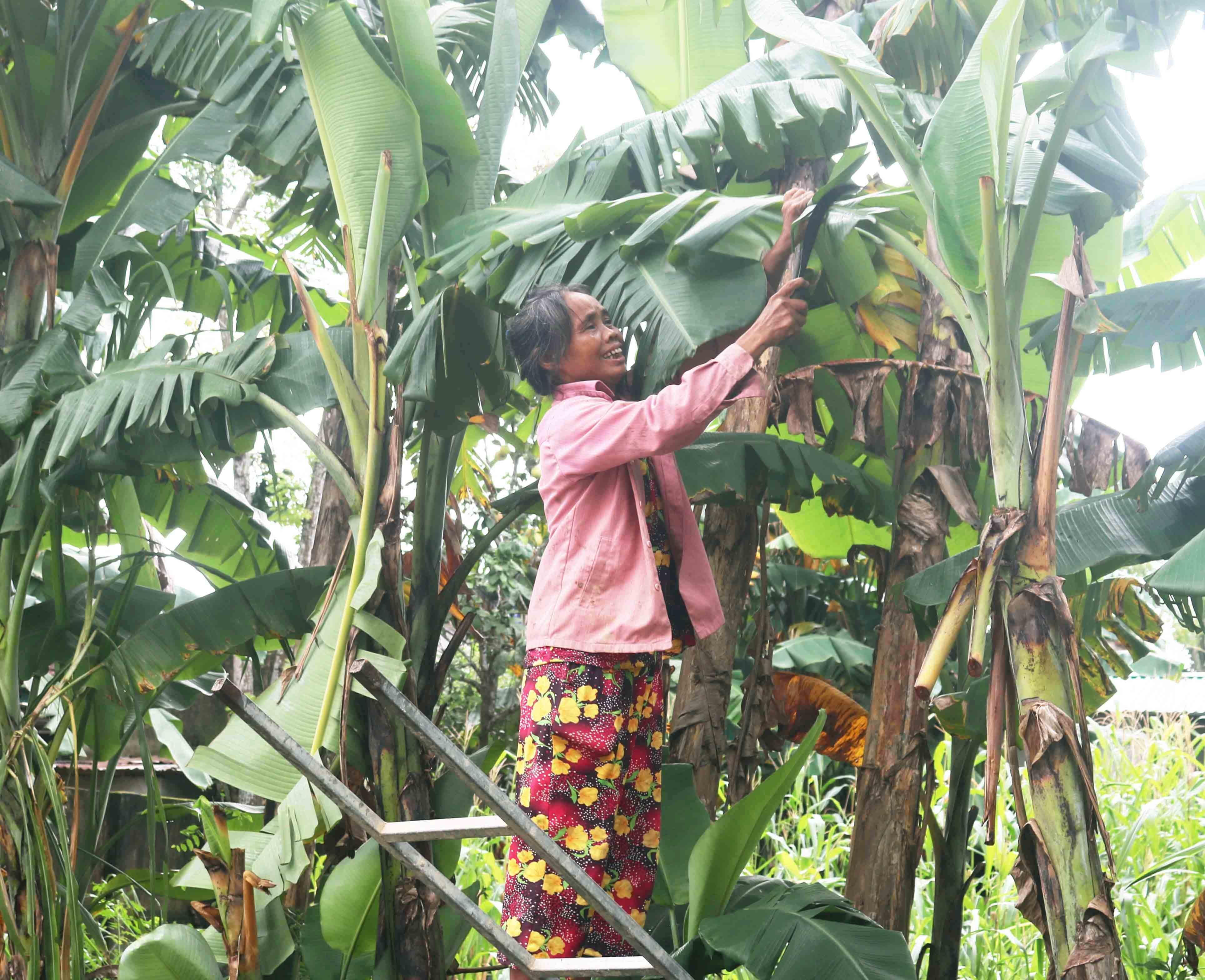 |
For people in Thanh Xuan commune (Thanh Chuong), to have green food for livestock after the flood, in addition to taking buffaloes and cows up the mountain, people often go to cut banana leaves, jackfruit leaves... This is a temporary food source for buffaloes and cows, when they have not had time to plant corn and elephant grass. Photo: Huy Thu |
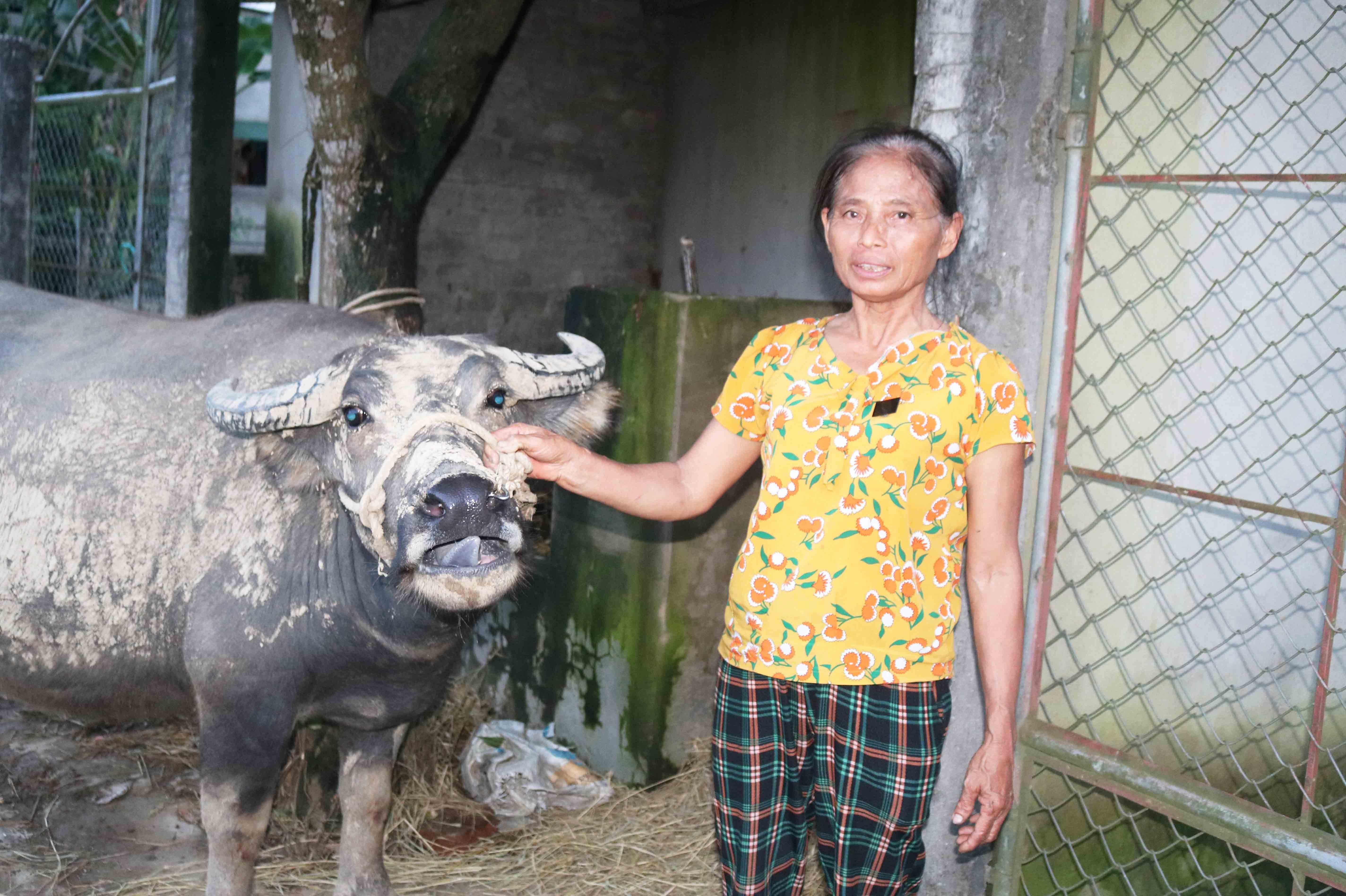 |
"The buffalo is the capital of the business", a valuable asset of farmers. Every flood season, farmers in the flood-affected areas in the province not only have to struggle to move away from the flood, but also have to worry about food sources for their livestock. In order to develop the herd of buffalo and cows, the Hung Nguyen District Agricultural Service Center also recommends that farmers, after the flood, need to conduct a general cleaning, disinfection, and sterilization of the livestock environment, ensure adequate clean water supply for livestock, check and reinforce stables; strengthen care and feeding to improve the resistance of livestock by providing adequate food and necessary minerals (Green food in flooded areas must be washed before feeding to livestock);Monitor and detect early when livestock gets sick, report to the neighborhood and veterinarian for timely handling and treatment. Photo: Huy Thu |
Buffaloes in the flood-prone area of Hung Nguyen wade through muddy water looking for grass. Video: Huy Thu |